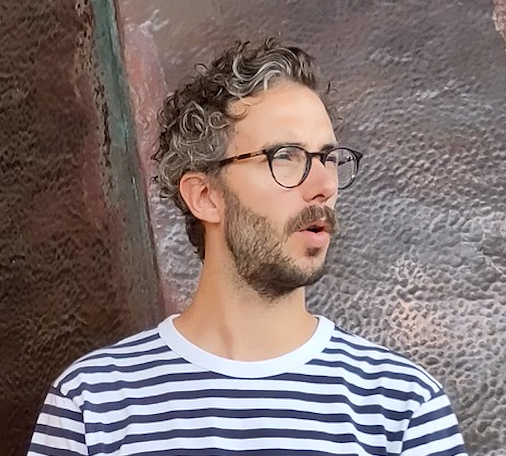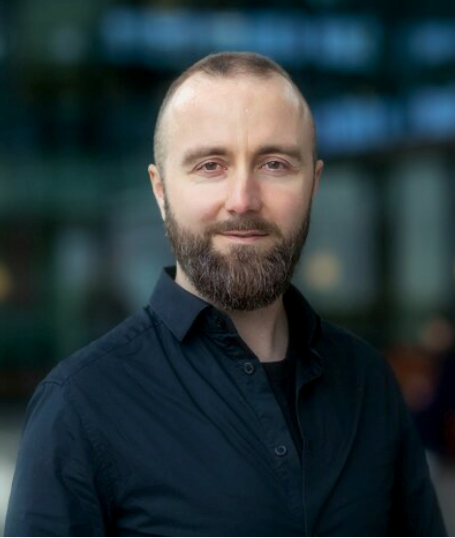
Seminar Series on Meaningful Human-AI Interactions for a Digital Society – #1: Designing for Meaningful Human-AI Interactions
mei 8 - 12:00 - 13:00
Register

A Seminar Series on Meaningful Human-AI Interactions for a Digital Society
Event #1: Designing for Meaningful Human-AI Interactions
With the increasing creation, use, and implementation of novel AI systems in every aspect of our society, we must ensure that AI complements us by providing meaningful engagement, centering systems on our human values, and implementing such systems with due consideration of society at large. In this series, we will bring together experts from diverse fields such as human-computer interaction (HCI), philosophy, design, and law with policymakers and practitioners in a mixture of single-speaker seminars, multidisciplinary panels, and expert-led workshops to define what it means to have meaningful human-AI interaction; how to design for these interactions in AI systems; and how to promote such interactions through legislation and policy making.
The kickoff event will be May 8th at noon to discuss how to design meaningful human-AI interactions for a digital society. Through presentations and discussion with panelists Dr. Mike Lensink (The Green Land), Dr. Dorian Peters (University of Cambridge), and Dr. Matthew Dennis (TU Eindhoven), we will discuss: what makes human-AI interactions meaningful? What features must be considered to ensure “meaningfulness”? How do we design for meaning in an ethically-responsible manner? The event will be moderated by Dr. Jie Yang (TU Delft).
All experts, policymakers, and practitioners with an interest in human-AI interactions are welcome to attend!
This event is supported by the National Digital Society Programme, Mondai House of AI, the TU Deft AI Initiative, Web Information Systems (WIS), and the Digital Ethics Centre.
(de voertaal van dit event is Engels)
Speakers


Mike Lensink (34) is as a researcher, facilitator, and advisor specialised in the ethics of technological innovation, data and algorithmic decision making. Mike has a background in philosophy, and has previously worked as an academic researcher at the University Medical Center Utrecht, where he wrote a dissertation on the ethics and responsible governance of stem cell banks. He currently works at The Green Land, an agency that supports public sector organisations in the Netherlands with responsible and humane use of data and algorithms.
In his work, Mike is particularly concerned with assessing the impact of algorithmic systems on the lived experience of human beings, and investigating the dynamics of the interaction between algorithmic systems, its users (staff), and citizens, in order to translate these insights into more humane technological innovations. Over the past years, he has worked together with a variety of governmental organisations, supporting them with various approaches to “putting ethics into practice”, i.e. operationalising ethics within and organisational processes, developing strategy and governance, and embedding ethical considerations in concrete technological solutions.
Dorian Peters is Associate Director at the Leverhulme Centre for the Future of Intelligence at the University of Cambridge as well as a Research Fellow at Imperial College London. A designer and design researcher, she specialises in Human-computer Interaction for learning, health, and wellbeing, and on digital ethics in practice. Her books include Positive Computing: Technology for Wellbeing and Human Potential (MIT Press), and Interface Design for Learning (Pearson).




Matthew J. Dennis is an assistant professor in ethics of technology at TU Eindhoven in the Netherlands. He is also the co-director of Eindhoven Centre for the Philosophy of Artificial Intelligence, and a Senior Researcher in the Ethics of Socially Disruptive Technologies research consortium (ESDiT). He specialises in the ethics of artificial intelligence, autonomy and well-being, and the future of work. His recent publications focus on intercultural perspectives (Buddhism & Confucianism) on how to flourish with emerging technologies. He has recently held visiting positions at the University of Oxford’s Institute for Ethics in Artificial Intelligence (2023), Erasmus Centre for Data Analytics (2023), University of Amsterdam’s Institute for Advanced Studies (2022), and University of Cambridge’s Centre for the Future of Intelligence (2020).
Add to Calendar
Register



